What Climate Democracy Looks Like
Ecuador votes to keep nearly a billion barrels of oil where it belongs — underground.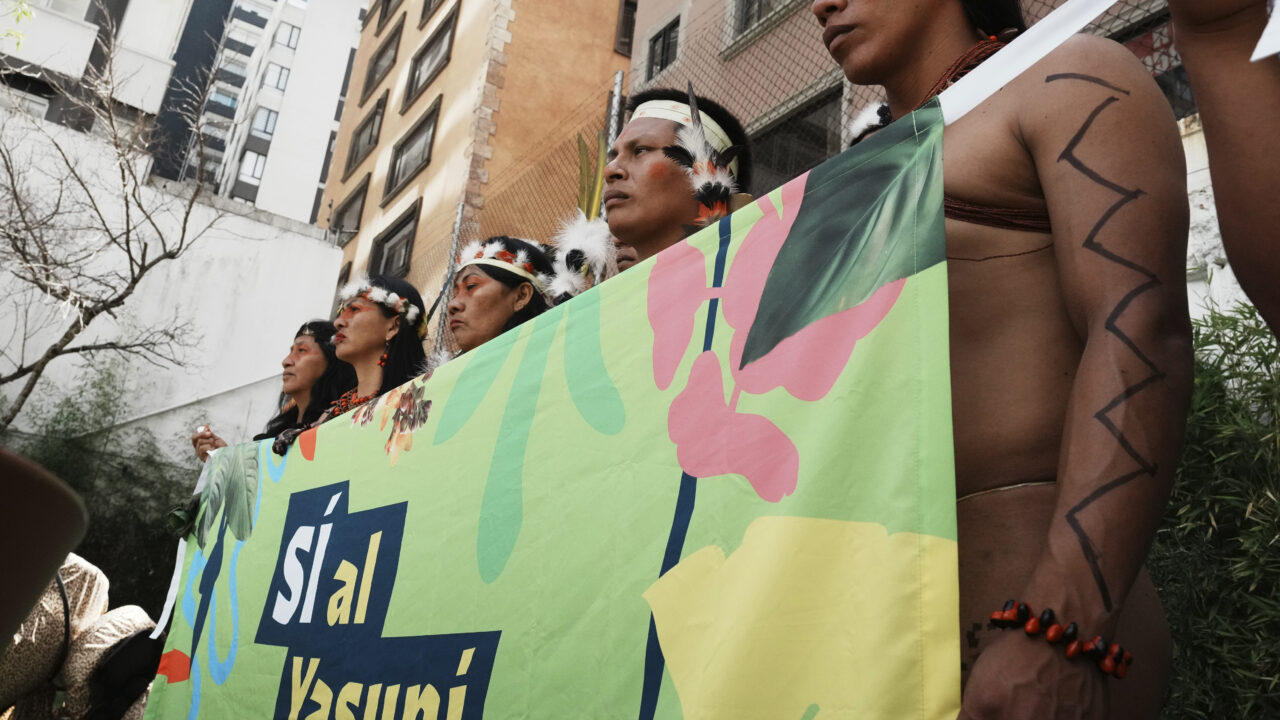 Waorani tribespeople at an event in Quito, Ecuador, promoting the referendum vote on Monday, Aug. 14, 2023. (AP Photo/Dolores Ochoa)
Waorani tribespeople at an event in Quito, Ecuador, promoting the referendum vote on Monday, Aug. 14, 2023. (AP Photo/Dolores Ochoa)
On Aug. 20, the people of Ecuador made history by checking tiny boxes. Beneath the names of the country’s presidential candidates was a binary proposition: “Yes” to permanently shut down drilling operations in Yasuní National Park, or “No” to expand them in pursuit of every drop of crude. Like all referenda, it had the virtue of stripping messy political conflict to a simple question. Yes or no. A right answer and a wrong answer. It was up to each citizen to decide.
By a vote of six-to-four, Ecuador voted “Yes” and became the first oil producing country to keep a large field untapped by popular vote. The state oil company now has one year to decommission and remove all infrastructure in the famous bioreserve. The 50,000-odd daily barrels currently pumped out of Yasuní may be a drop in the global oil bucket — Saudi Arabia produces 12 million barrels a day — but staunching the flow is not purely symbolic. Production at Yasuní represents more than 10% of tiny Ecuador’s total oil production; ending it will impact the country’s foreign reserves and degrade the country’s once-stellar reputation within the rapacious global oil industry. In choosing this, Ecuadoreans have declared other things supreme. Deconstructing the derricks protects a 50,000-acre ecosystem in the western Amazon watershed that is known as “the most biodiverse place on Earth.” At the equatorial borderland of the Andean foothills and the Amazon basin, Yasuní contains 10% of the rapidly declining number of species on Earth. It is also home to two of the largest remaining “uncontacted” tribes living in voluntary isolation. Locking its oil beneath the soil will stop an estimated 345 million tons of CO2 from releasing into an already carbon-clogged atmosphere.
Yasuní is familiar with the international spotlight. Long preceding its UNESCO bioreserve designation in 1979, its singular biological riches were legendary among those who study tropical flora and fauna. Its reputation as an inland Galapagos, to be protected at all costs, gained prominence in 2007, when Rafael Correa, Ecuador’s newly elected leftist president, made Yasuní a showcase study in the dueling pressures of extraction and preservation. He did so by placing Yasuní at the center of a bold extractive agenda designed to fund the urban anti-poverty programs implemented by “Pink Tide” governments across Latin America in the aughts and early teens.
Faced with calls by rich nations to exempt Yasuní from drilling and mining concessions, Correa responded by offering his critics a deal: Ecuador would keep the drills out of Yasuní if the international community — namely the OECD countries where calls to keep the reserve pristine were loudest — paid his government $3.6 billion (roughly half of Ecuador’s expected annual oil revenue at the time). The response was, if not exactly crickets, then the cricket-like noises generated by Yasuní’s 100,000 insect species. In August of 2013, after five years of campaigning international investors and governments, Correa canceled the Yasuní initiative with just $200 million pledged. He then greenlit the state oil company to begin drilling an area of Yasuní the size of 1,200 American football fields. As in other rainforest concessions in the region, the oil roads served as arteries for despoilment and destruction. Along with the expected spills and leaks came illegal incursions by poachers and the expansion of the agricultural frontier.
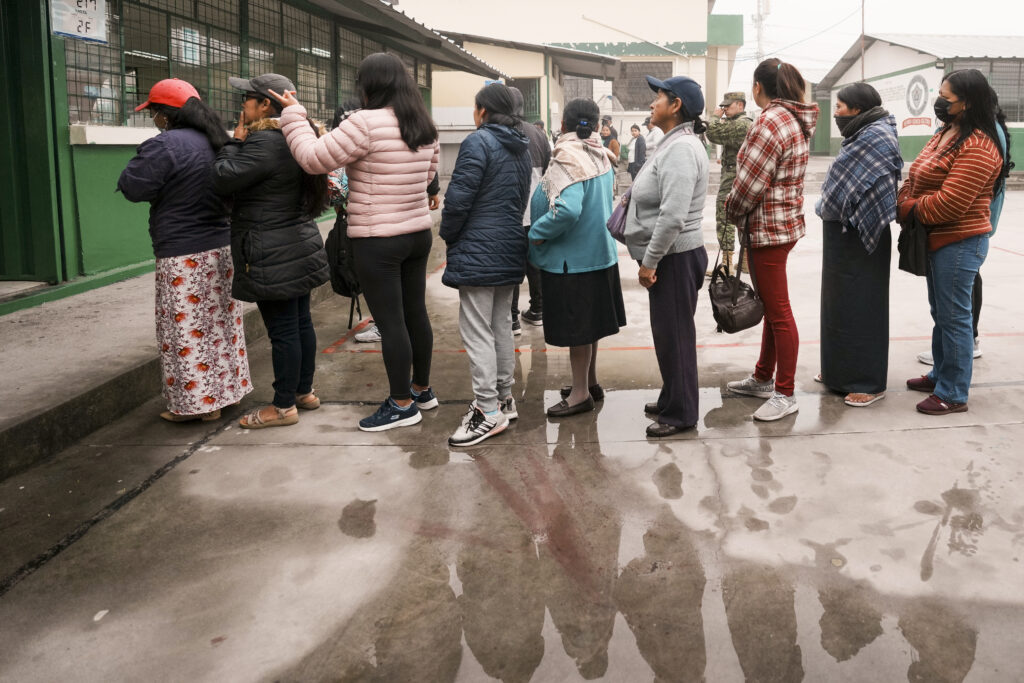
Correa’s extractive concessions in Yasuní and throughout western Ecuador made a mockery of Ecuador’s new constitution, celebrated around the world upon its adoption in 2008 for its pioneering enshrinement of the “rights of nature” alongside the rights of man. Beneath the ecological rhetoric, Correa’s rainforest policies represented continuation with the military dictatorship that invited the U.S. oil industry into the Amazon in the 1970s. Twenty years later, the legacy of this development was known as the “Amazonian Chernobyl” and resulted in the awarding of a $7 billion class-action suit by tens of thousands of affected Indigenous villagers. (The judgment was later overturned by a federal judge in New York as part of a larger, ongoing saga involving the American lawyer Stephen Donziger.)
Ecuador’s Yasuní vote has significance beyond the measurable climate and conservation impacts. It shows that the population of a low-to-middle income country can question and reject the values and false promise of oil-driven “development.” The country’s judicial system issued a similar signal in 2019, when a high judge barred oil and mining development on a large tract of Waorani land in the country’s northwest. Among Ecuador’s largest and most storied tribes, the Waorani have been at the forefront of organizing to protect Yasuní, which they claim as a spiritual homeland. The recent vote builds momentum for further and bolder challenges to Ecuador’s oil-dependent economy and the extractive model that it represents. Organizers say the campaigning that preceded the Aug. 20 vote will continue to advance and make explicit what is fundamentally a philosophical challenge.
“Over half a century of oil exploitation hasn’t brought any development, it has only destroyed nature,” says Nemonte Nenquimo, a Waorani leader who won the Goldman Prize for her role in the 2019 legal victory. “People are now realizing the crises we face aren’t going to be solved by exploiting more oil. Ecuador is showing other countries that another world is possible.”
Ecuador’s Yasuní vote has significance beyond the measurable climate and conservation impacts. It shows that the population of a low-to-middle income country can question and reject the values and false promise of oil-driven “development.”
Bringing such a world into view will require global movements that draw from the Yasuní campaign’s intellectual well of ideas, ones deeply colored by Indigenous ideas about how to measure the health and purpose of economic activity. In the Global South, these alternative metrics are sometimes grouped under the rubric “post-development,” referring to a broad rejection of the “resource curse” — an endless cycle of extraction, despoilment, poverty and debt that continues to define north-south relations. A refusal to accept this state of affairs in the Global South will force a similar reckoning in the northern industrialized countries engaged in an ever-more desperate scramble for energy resources and a growing list of minerals.
The decision to keep oil buried under Yasuní cranks the contrast on tortured “market-based” used in the North to justify slow-walking the end of the fossil fuel era. The most absurd of these is the international market in “carbon offsets,” or climate coupons that allow corporations and governments to claim carbon reductions, not by actually changing behaviors, but by throwing money at corrupt, unmonitored and convoluted versions of Correa’s failed 2008 finance-based Yasuní initiative. A recent report published by the Guardian, Die Zeit and SourceMaterial found that more than 90% of the offsets ballyhooed by self-congratulating corporations are “worthless… phantom credits.”
Like the indulgences racket of the medieval Catholic Church, the carbon offsets industry is run by brokers selling the illusion of an easy way out of temporal punishment. And just like the buyers of indulgences, the companies flaunting their offset-enabled “net-zero” goals have made a choice. Wealthy Catholics in the time of the Crusades chose to buy indulgences because it was easier than penitential works requiring forms of self-abnegation, such as fasting and alms giving. The Yasuní referendum illuminates what that harder path looks like in the context of our civilizational crisis. It suggests a path of self-restraint requiring sacrifice, imagination and the work of developing new ideas and rediscovering old ones.
“The referendum on Yasuní reflects the hard-won lessons of people whose lands and cultures were sacrificed on the altars of oil and perpetual economic growth,” says Mitch Anderson, a longtime Ecuador-based activist who organizes with the Waorani and other western Amazon tribes. “It’s a clarion call to be heeded and imitated across the Amazon and in the northern hemisphere. Why aren’t U.S. and European publics demanding similar acts of climate democracy? And how would they respond if they got it?”
Your support matters…Independent journalism is under threat and overshadowed by heavily funded mainstream media.
You can help level the playing field. Become a member.
Your tax-deductible contribution keeps us digging beneath the headlines to give you thought-provoking, investigative reporting and analysis that unearths what's really happening- without compromise.
Give today to support our courageous, independent journalists.
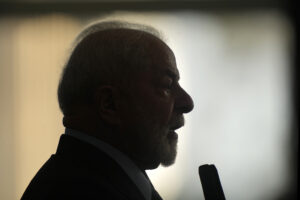
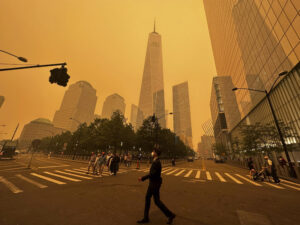

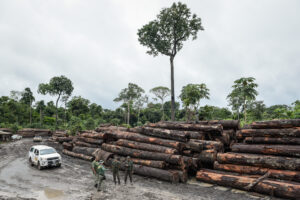
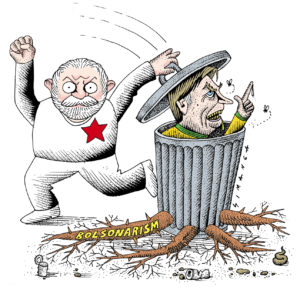
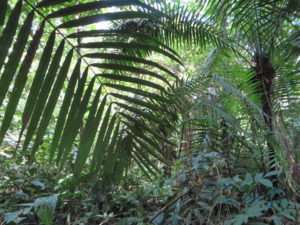
You need to be a supporter to comment.
There are currently no responses to this article.
Be the first to respond.